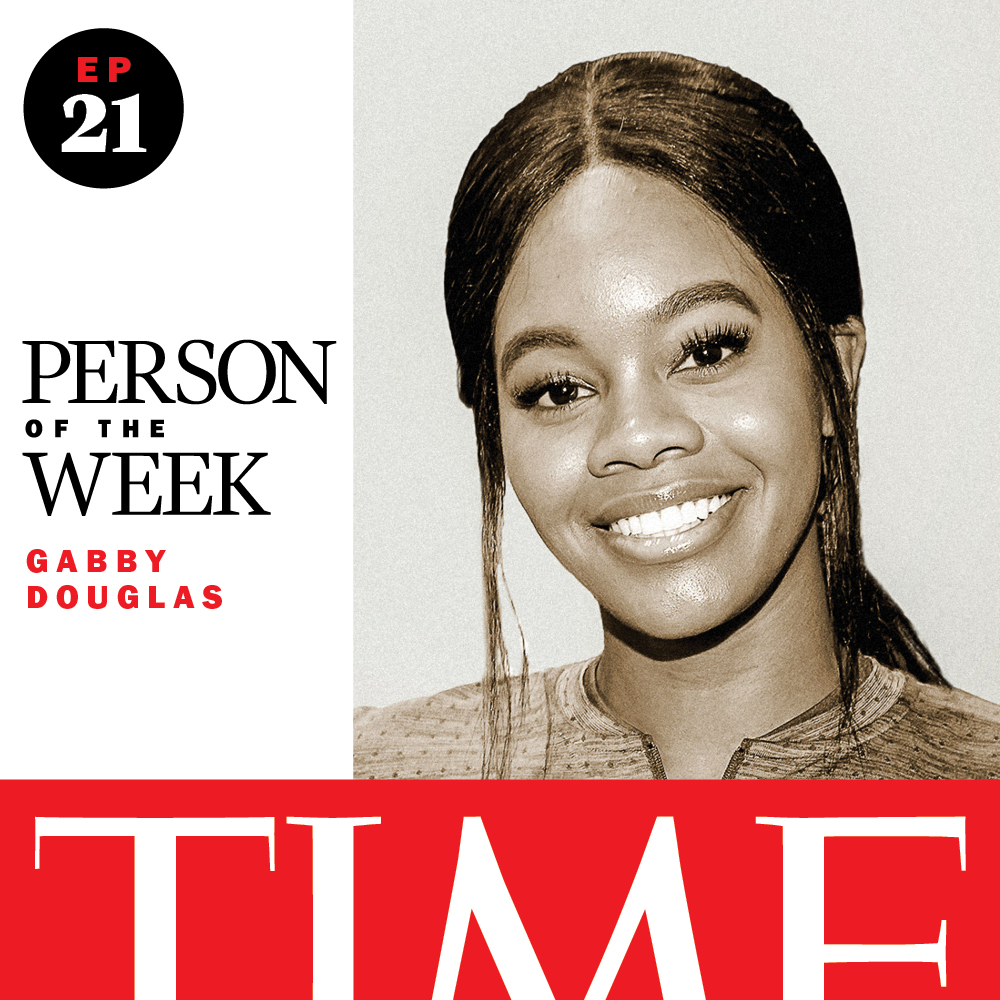You probably remember Gabby Douglas from the 2012 Summer Olympics, when she became the first Black U.S. gymnast and first woman of color from any country to win the Individual All-Around Gold Medal in gymnastics. As a member of the “Fierce Five,” Douglas transformed gymnastics and made Olympic history at the age of sixteen.
Now, more than a decade later, Douglas is attempting to compete in a rare third Olympic games at the age of 27. If she succeeds, she’d be one of very few elite gymnasts who qualify for the Olympics in their late 20s. And she’s currently in training to do just that.
Since breaking Olympic records in her teens, Douglas has had a lot of time to think about all the intense pressure that comes along with her accomplishments in the athletic world.
In our conversation, she opened up about dedicating her childhood to gymnastics, what it felt like to win a gold medal, and what happens to a champion gymnast after the spotlight fades.
Tune in every Thursday, and join us as we continue to explore the minds that shape our world. You can listen to the full episode in the player above, but here are a handful of excerpts from our conversation, which have been condensed and edited for clarity.
On the moment she made history as the first Black U.S. gymnast to win the the Individual All-Around gold medal in gymnastics:
It was so surreal. I was told always: just go out there, do nothing more, nothing less. Do how you do in training. And the results will speak for itself. So like every competition, all I had in mind was just four events. Do your normal and you’re going to be fine. And that’s what I did. And I honestly, to this day, never expected to have that sort of impact on people [and] on the sport.
It was crazy. I remember, I was icing my whole body, because like, it’s the Olympics, you give everything… and Márta Károlyi, she was head coordinator of gymnastics, Márta’s like, “You’re going to be famous.” And I, in that moment, I didn’t believe her. Because I’m like: famous, what do you mean? I’m not a celebrity. I just got a gold medal. I thought nothing of it.
They were like, the President wants to speak to you. And it was Obama. He was just like, I want to congratulate you…And I was like, what? What is happening right now? So yeah, my life switched so quickly, literally overnight.
And again, I was so young I didn’t understand. I was like, why does Jay Leno want me? Or why does like Jimmy Fallon want me on his show?
Like, I just want to go back to the gym and I just want to keep training. I couldn’t even go out to a normal family dinner. I couldn’t go anywhere without getting mobbed. I remember I was trying to catch a flight, and I’m running through the airport, [and] people like running behind me. Everyone’s screaming, ‘it’s Gabby Douglas!’
On the controversy around her facial expressions at the 2016 Olympics:
There are a lot of times where you’re going to be upset. You’re going to be mad. And not at anything else, just at the very fact that I didn’t do my best.
I mean: is LeBron, or some basketball player, if they didn’t do their best, they didn’t put in their effort, is LeBron gonna be excited?
Who’s excited, who’s happy that they didn’t do their best? And on top of that, people already know you didn’t do your best. And so was I supposed to be happy when people are tweeting, you don’t deserve to be on this team? Like, am I supposed to be like, wow, thank you?
It’s honestly very, very, unfair. My sister’s like, you wear your emotions on your face. And on TV, you have to put on a show basically. And be an actress and say, this isn’t phasing me. But it is.
On exploring who she is outside of gymnastics:
After the 2016 Olympics—I honestly didn’t do my best, and that Olympics didn’t go quite in my favor— but I learned that medals, or like Grammys or Oscars, they’re amazing and they represent your hard work, but it’s not who you are. It doesn’t define you. You know you do your craft. That’s what you do, but it’s not who you are. And it took me a long time to figure that out. And I would always say like, without my medals I’m nothing.
I’m still a human being, I still have many other talents to give, much more than just gymnastics. It’s so weird, but I guess it makes sense, because if you start to do the thing every single day… gymnastics was every single day since I was six. So, [with] gymnastics, [I was] like: this is who I am. But it’s not who I am.
- The 100 Most Influential People of 2024
- How Far Trump Would Go
- Why Maternity Care Is Underpaid
- Scenes From Pro-Palestinian Encampments Across U.S. Universities
- Saving Seconds Is Better Than Hours
- Why Your Breakfast Should Start with a Vegetable
- Welcome to the Golden Age of Ryan Gosling
- Want Weekly Recs on What to Watch, Read, and More? Sign Up for Worth Your Time
